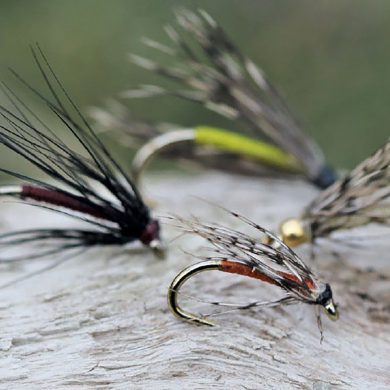Source: S&TA
From experience of fish farming elsewhere, the organisations feel that there is a significant risk of damage to wild fisheries and recreational angling from:
• Infestations of sea lice: fish farming in Scotland has led to widespread infestations of wild salmon and sea trout with this parasite which literally eats fish alive and can have a massive impact on wild stocks. Evidence suggests that there is increasing resistance in lice populations to pesticides;
• Escapes of farmed fish into the water environment: given the power of winter storms, it seems inevitable that trout will escape from the cages and swim up local rivers, where they will compete with wild salmonid stocks for food and potentially transfer disease;
• Waste food, pesticides and fish faeces causing pollution: evidence from Scotland shows that waste food, faeces and chemicals can have a significant impact on the local ecosystem around open cage farms.
The South West Rivers Association (SWRA) contacted CEFAS in 2013 to express these concerns about the proposals but have apparently been ignored. CEFAS has continued to promote the project enthusiastically in the South West.
Paul Knight, Chief Executive of the S&TA said:
“Marine aquaculture is one of the two main issues debated within the North Atlantic Salmon Conservation Organisation (NASCO), to which England is a party through the EU delegation, and CEFAS is a regular attender of annual meetings as specialist advisers to that delegation. It is, frankly, inconceivable that CEFAS should therefore be supporting a move into open net aquaculture in South West English tidal waters without first being assured that the impacts of sea lice infestation on wild fish, escapes and the polluting effects of cage fish farms on local marine ecosystems, have been addressed, which as yet they most certainly have not.”
Mark Lloyd, Chief Executive of the Angling Trust & Fish Legal said:
“Our freshwater and sea angling members in the South West of England are very concerned about these proposals. It seems absolutely barmy to try to farm fish offshore, especially given the storms of last winter. Nearly all fish farms lose fish even in the relatively benign environment of Scottish lochs, and escapes would be almost inevitable from cages installed in seas which regularly see 70 foot waves. Marine and freshwater fish populations already face a host of other threats from pollution, abstraction, commercial exploitation and barriers to migration, about which CEFAS is well aware. The last thing they need is another risk from sea lice infestation, escapee rainbow trout and pollution.”
Roger Furniss, Secretary of South West Rivers Association, said:
“I have over 40 years of experience of Cornwall’s salmonid and sea fisheries and know that salmon and sea trout migrate through and feed in these waters. Development of artificial salmonid aquaculture in them poses an unacceptable risk to these important fisheries.”


